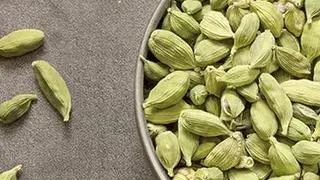The Commission for Agricultural Costs and Prices (CACP) has said that paddy growers are facing ‘implicit taxation' of 16-25 per cent due to levies and ban on export of rice. It has also said rice export quota should be distributed among States in proportion to their contribution of rice to the buffer stocks.
In its recommendation for minimum support price (MSP) this year, the commission said that the Centre should announce a bonus of Rs 80 a quintal over and above the MSP if exports were not allowed and also for the taxation.
This season that began in July, the Centre has fixed an MSP of Rs 1,080 a quintal for common paddy against Rs 1,000 last year. For Grade A paddy, the MSP is Rs 1,100 (Rs 1,030 last year).
International prices
“If export of rice is opened up, farmers are likely to get the price prevailing in the international market of the comparable variety of rice, minus the transportation cost and exporters margin,” the CACP said. On a rough calculation, paddy farmers have been getting prices 16 to 25 per cent lower than what they would have got had shipments been open.
The CACP, in fact, recommended allowing 30 to 50 lakh tonnes of rice. (The Centre has permitted exports of 30 lakh tonnes of rice.)
On the higher statutory levies that vary from 50 per cent to 75 per cent across various States, the Commission has said that it should be reduced to 50 per cent in States where it is 75 per cent and to 25 per cent in States that have 50 per cent levy obligation.
Under levy obligation, each States fixes a certain amount of rice that will have to be offered to the procurement agencies for the buffer stocks. For example, in Andhra Pradesh a mill will be allowed to sell half a tonne of rice in the open market for every tonne it delivers to the procurement agency.
In 2-3 years time, no State should have a levy of over 25 per cent. The levy could be justified to take back some of the subsidies that farmers get though fertilisers, power and cheap irrigation water.
The commission, which carried out an in-depth analysis of paddy costs, said that the weighted average production cost was Rs 888 a quintal. Thus, the return was between 13 and 23 per cent going by last year's MSP.
Though the MSP has been raised, the cost of production was also rising due to labour and energy.
INCENTIVE FOR FARMERS
The commission said a higher MSP along with non-price policies would incentivise farmers to help bring about some balance in the agri-basket of the country. “It will align demand and supplies of various commodities, encourage rice production in water abundant eastern States,” it said in its recommendation. The CACP said such steps would also encourage farmers to take to coarse cereals, oilseeds and pulses in less irrigated tracts.
The MSP payment to farmers should have a reasonable rate of return, the commission said, expressing concern over prices ruling below the MSP in some place last year.
If the Government is unable procure rice and wheat for buffer stocks effectively, it should invite the private sector to procure on the Government's behalf under the same terms and conditions as the Food Corporation of India (FCI), including cost of procurement and preserving stocks.
The Commission has stressed the need to liquidate excessive stocks with the Government. Stocks with the FCI are nearly double the norms set by the Government and they are exposed to the vagaries of the climate, rodents and anti-social elements.
At the current economic cost of about Rs 20 a kg for rice and Rs 16 a kg for wheat, the cost for maintaining the excess stocks with the FCI is Rs 40,000 crore. This was putting pressure on prices besides creating artificial shortage in the market.
Improper storage also led to wastage of grains that was almost 10 per cent in some cases. Therefore, excess stocks should be sold in the open market at a price not below the MSP.
The commission said that flaws in the retail food marketing could be remedied though improved public distribution system and encouragement of active private retail chains, reforming the mandi system relating to taxes, fees and commissions. It also called for extending the Mother Dairy safal model to cereals and provision of adequate commercial intelligence in the Government.







Comments
Comments have to be in English, and in full sentences. They cannot be abusive or personal. Please abide by our community guidelines for posting your comments.
We have migrated to a new commenting platform. If you are already a registered user of TheHindu Businessline and logged in, you may continue to engage with our articles. If you do not have an account please register and login to post comments. Users can access their older comments by logging into their accounts on Vuukle.